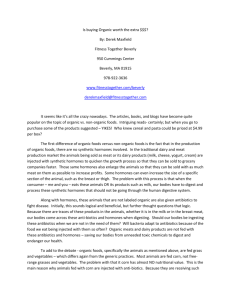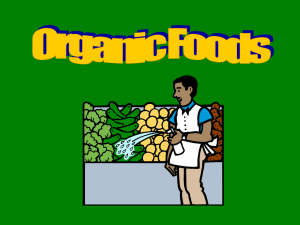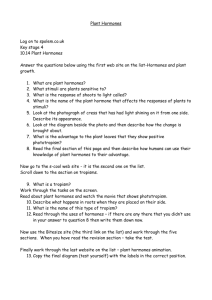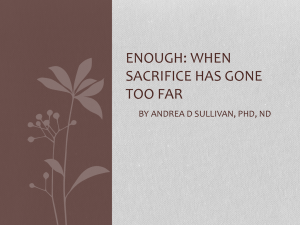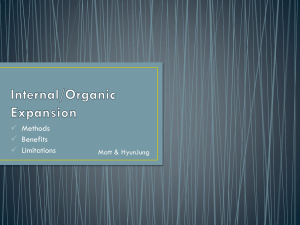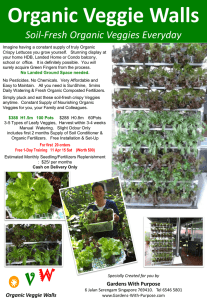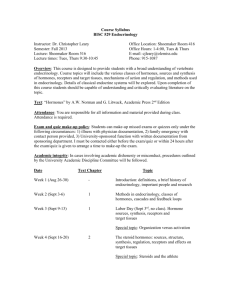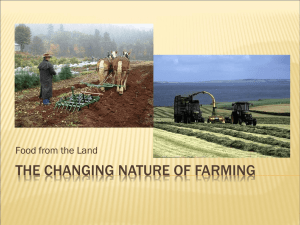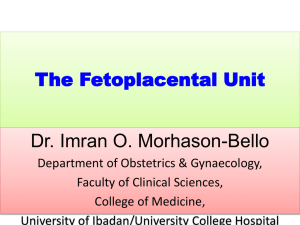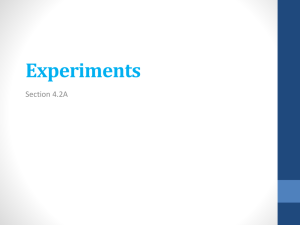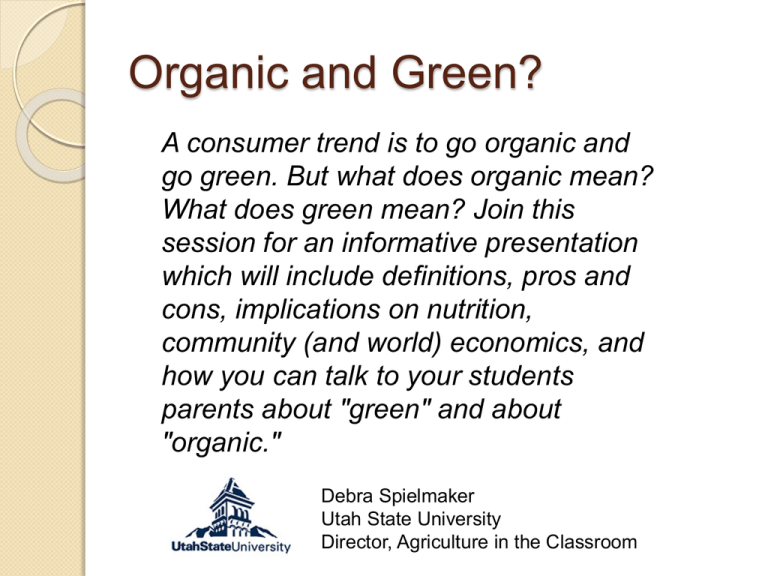
Organic and Green?
A consumer trend is to go organic and
go green. But what does organic mean?
What does green mean? Join this
session for an informative presentation
which will include definitions, pros and
cons, implications on nutrition,
community (and world) economics, and
how you can talk to your students
parents about "green" and about
"organic."
Debra Spielmaker
Utah State University
Director, Agriculture in the Classroom
Can we all agree?
We want food to
be as safe as
possible.
We want to live in
a healthy
environment.
means objectively.
We want a quality
of life that
supports both.
What is dangerous?
Natural toxic chemicals in food?
Toxic chemical residues from pesticides?
Carcinogens? (cancer-causing agents)
Microorganisms?
Parasites?
Allergens?
Genetically Engineered Organisms?
Hormones?
Cloning?
Many plants produce
self-defense chemicals.
These chemicals are plentiful and
potent.
◦ Allergens
◦ Carcinogens (Cancer-causing agents)
Respond to the handout
◦ Teratogens –(Cause birth defects)
◦ Mycotoxins (Fungal Toxins)
They have a long history of making
people sick.
Natural Pesticides
•
Could not be registered if made by
industry
•
Too Toxic
•
Too Plentiful
•
Of all the vegetation in the world, we can
eat very little
•
Many plant toxins are heat stable
•
Humans, other mammals, and insects
have evolved special enzymes to detoxify
foods.
Insect Damage Creates
Ports of Entry for Fungi
MYCOTOXIN
WHEAT PRODUCTS -- ORGANIC VS CONVENTIONAL
Probabilistic Model – French Data
(amount eaten * contamination level)
conventional
mg /person /day
120
Reg. Level
for 60 kg person
organic
80
40
0
80
85
90
95
PERCENTILE EXPOSURE
Leblanc et al. Reg. Toxicol. Pharmacol. 36: 149-154, 2002
Food News
What’s in the news
◦ Jamie Oliver (Food Revolution)
◦ Newspapers & Popular Press
Books (Lots – sum up with “Food Rules”)
Is Organic Food Marketing Hype?
Small changes steer kids toward smarter school
lunch choices
Colorado's K-12 meals get a made-from-scratch
makeover
Cafeterias serve home-style food
Food Concerns:
Organics and Conventional Production
Safety: Producers & Consumers
Economics: Producers & Consumers
◦ A word on the cost of buying cheap
Environment: Sustainability
Food and Nutrition: Agree or Fiction
©Ag Literacy Works
How much carcinogen is in my food?
Alar
Bacon
Tap Water
Peanut Butter
Diet Cola
Mushrooms
Beer
Wine
Cancer Causing Chemicals
5
4.5
4
3.5
3
2.5
2
1.5
1
0.5
0
Alar
Bacon
Tap Water
Peanut Butter
Diet Cola
Mushroom
Beer
Wine
Manufactured Danger
Not Fed
Hormones
Not Fed
Hormones
Fed
Hormones?
Not Fed
Hormones
Not Fed
Hormones
Not Fed
Hormones
All milk tests exactly the same
In the quantity and type of
hormones found in it. It does
not matter if the milk is
produced organically,
conventionally or from cows
given rBST.
So what can you do?
Read, a lot!
Be concerned with sustainability,
energy is key as is knowing your
farmer
Buy Local
Work on the garbage – a big part of
sustainability

